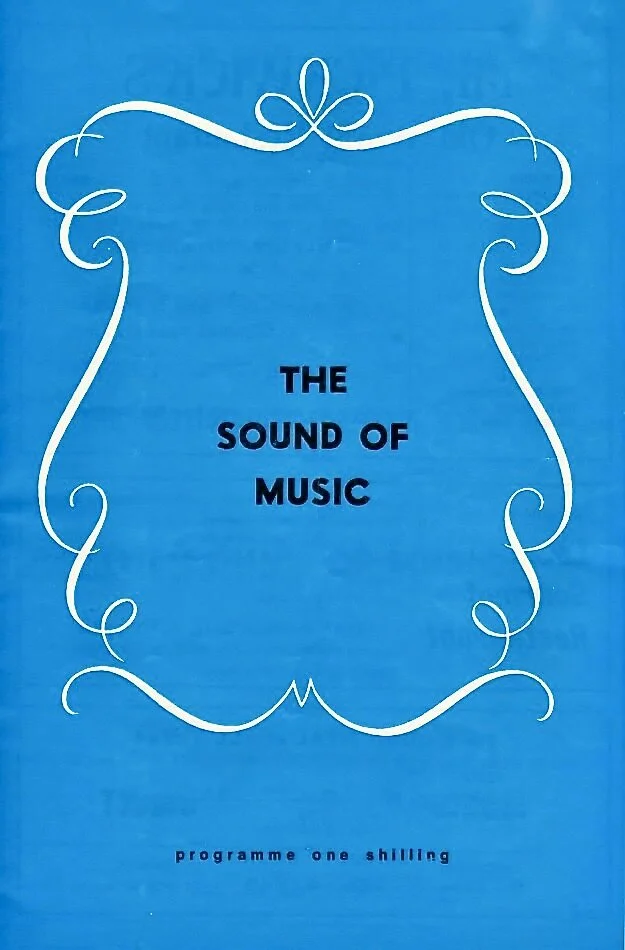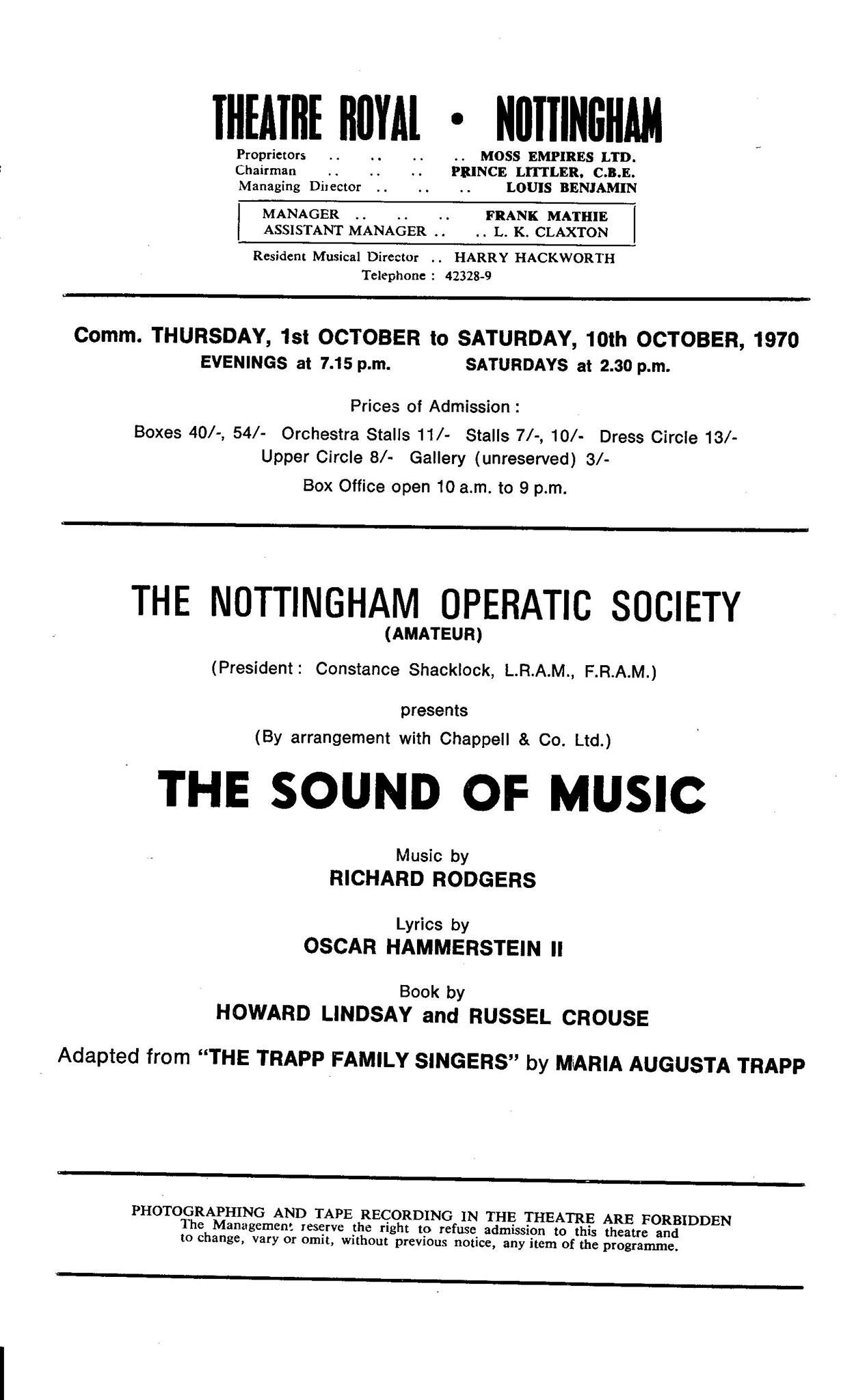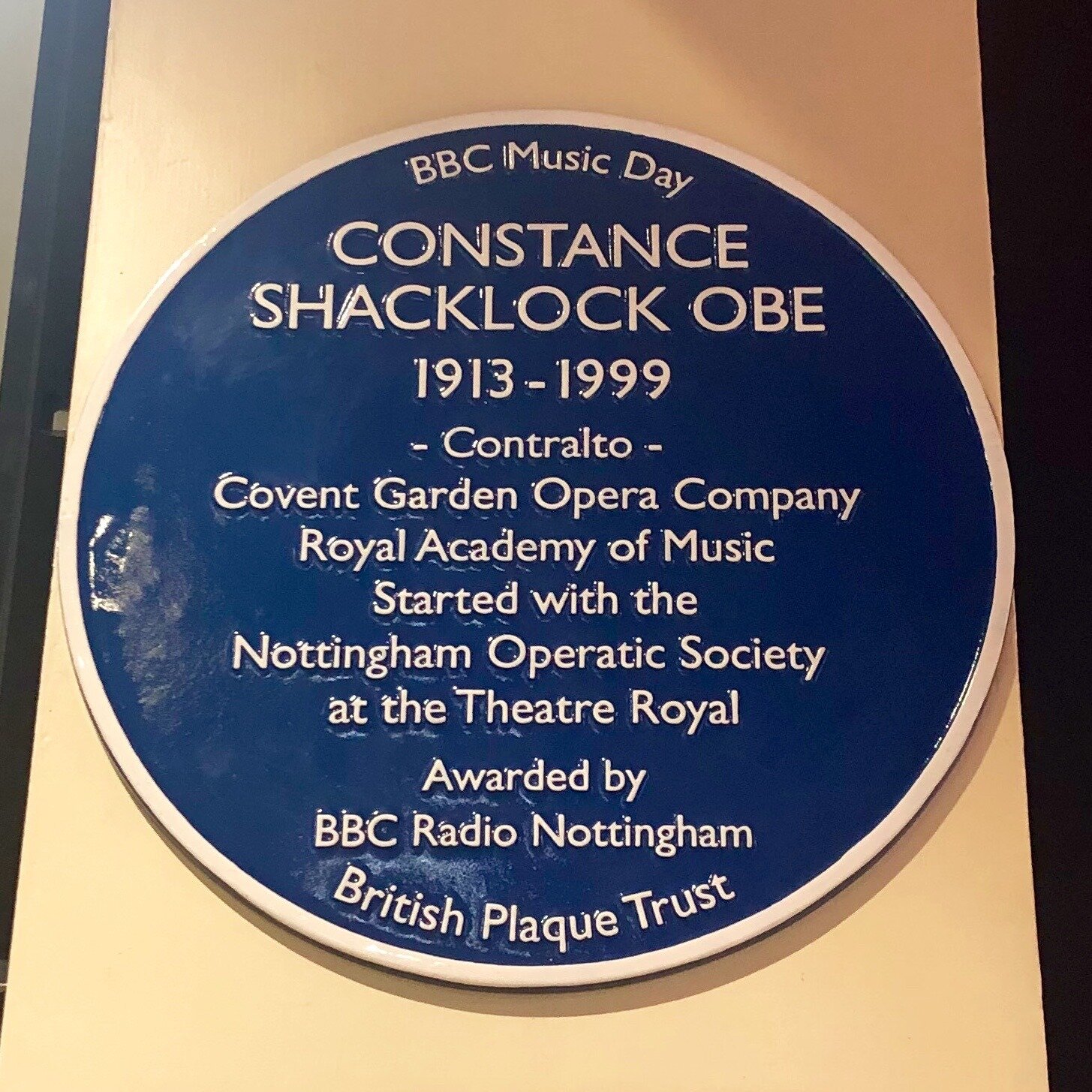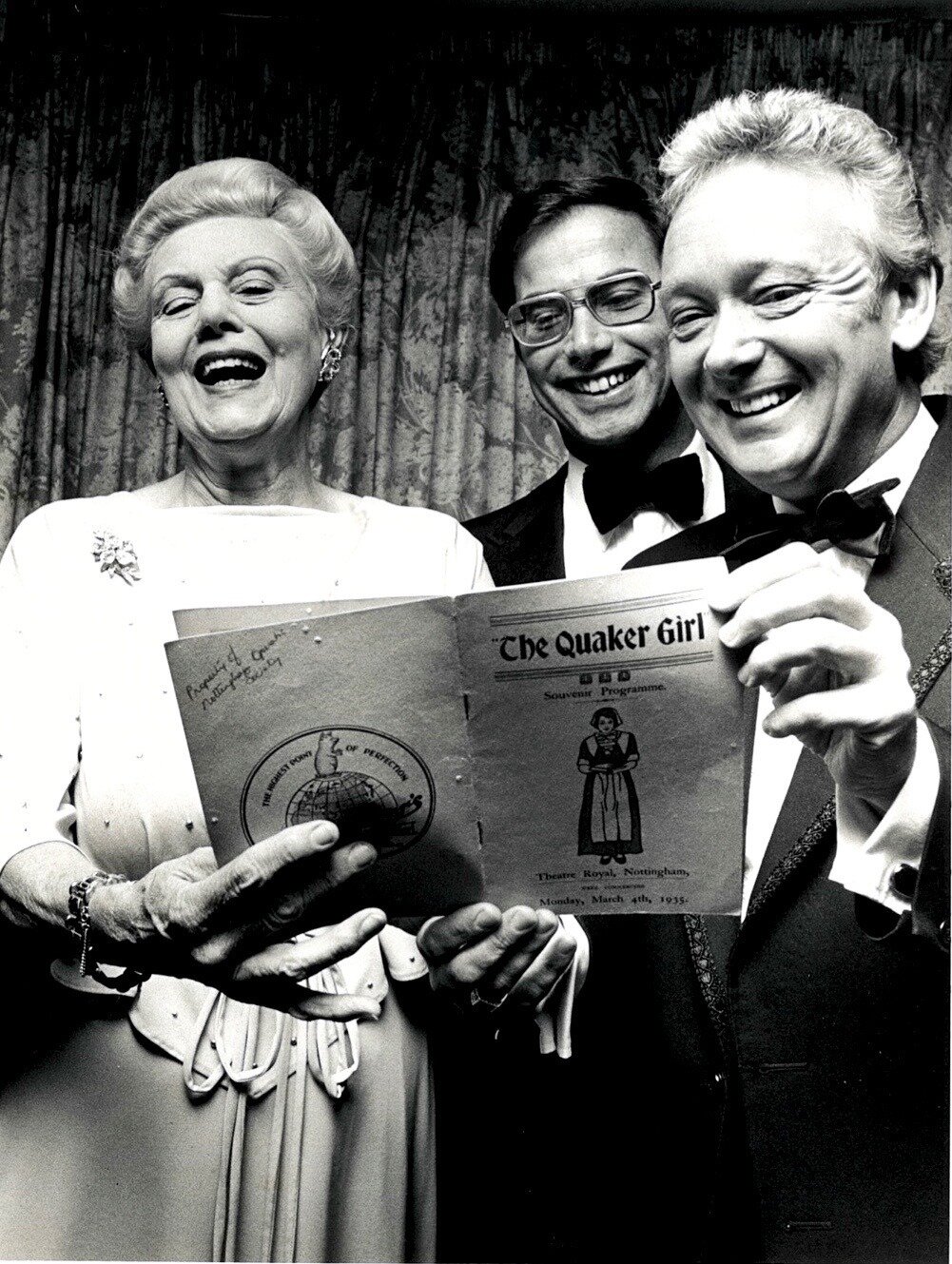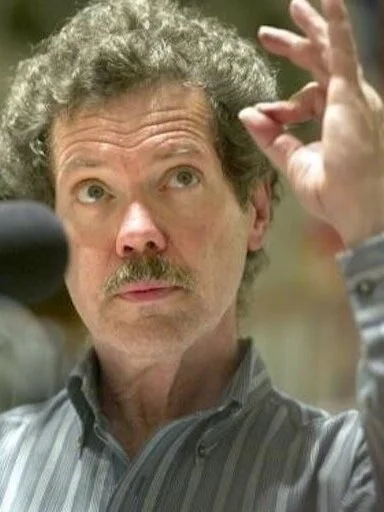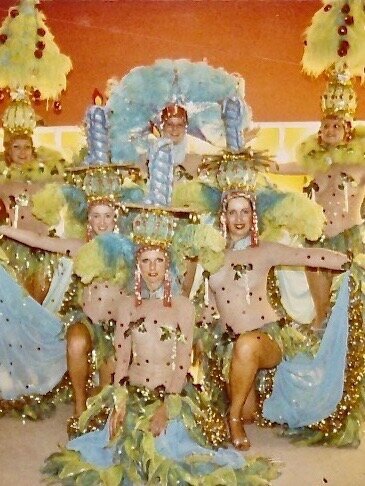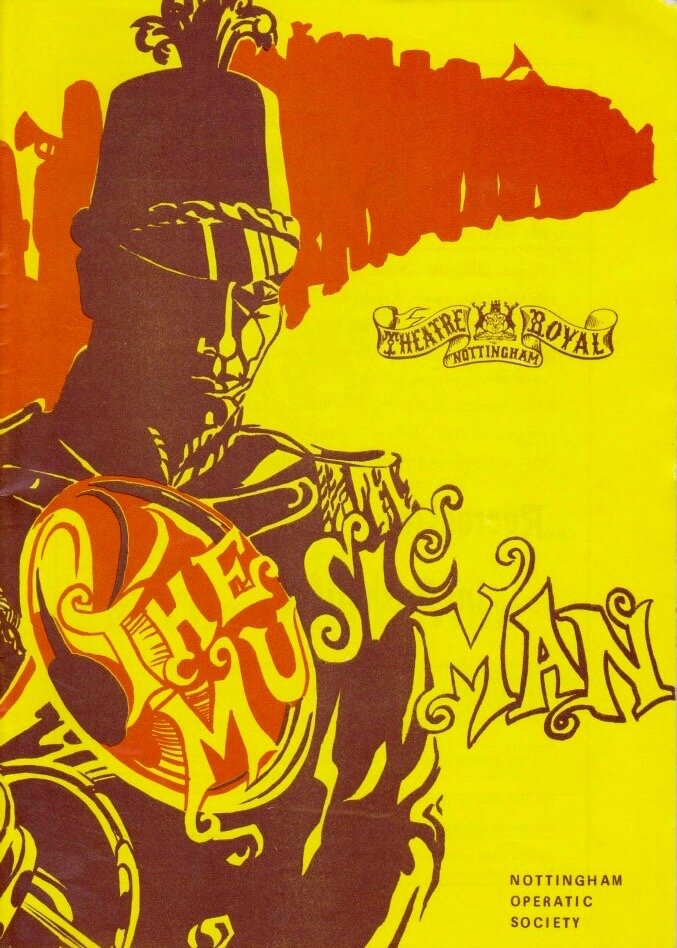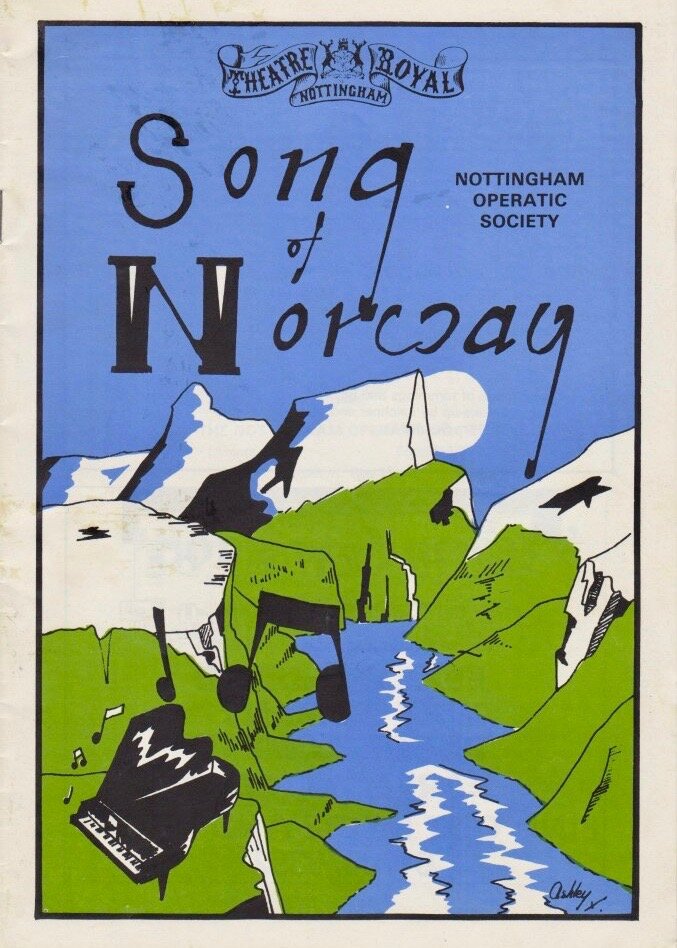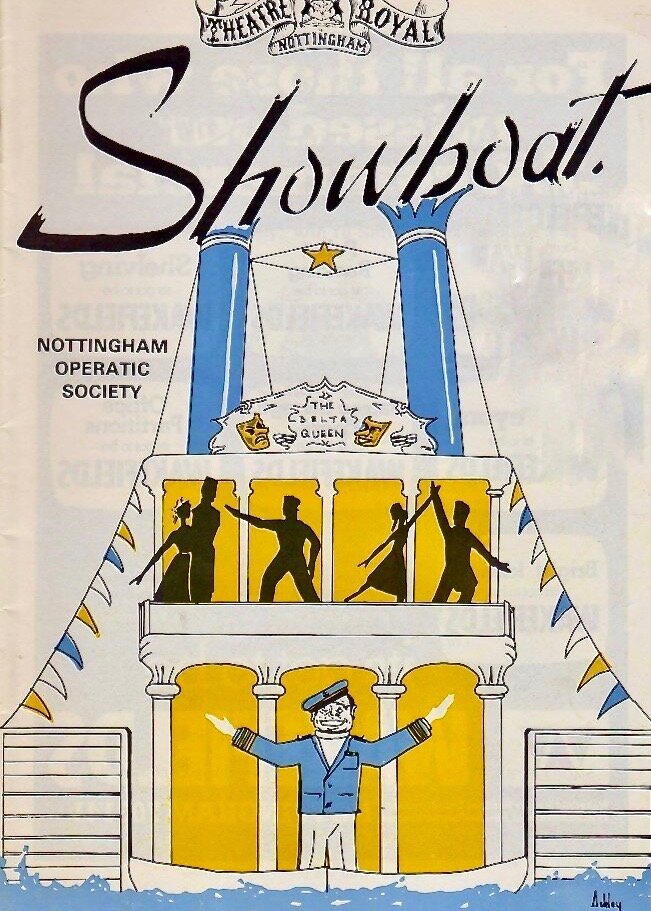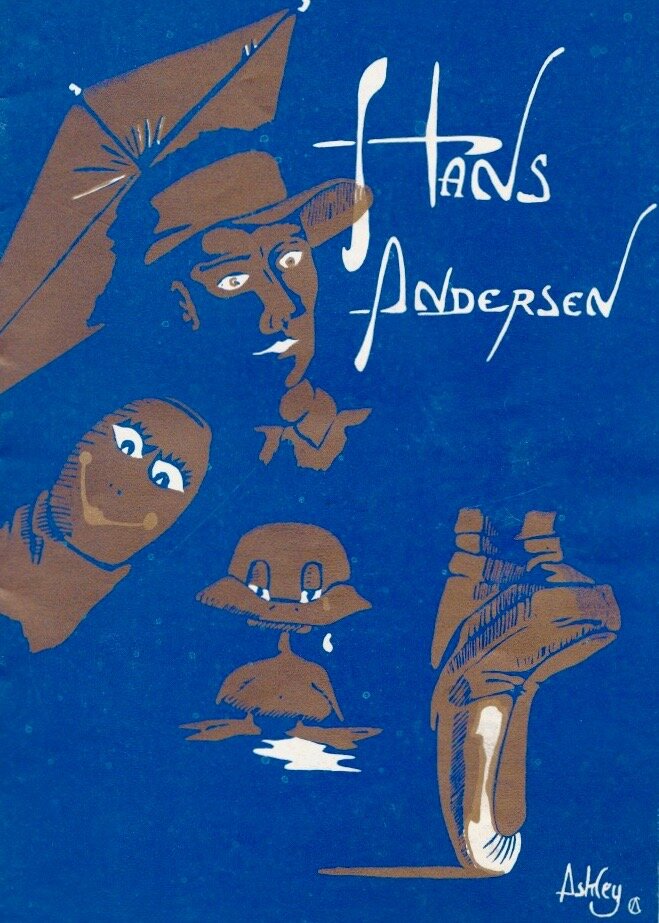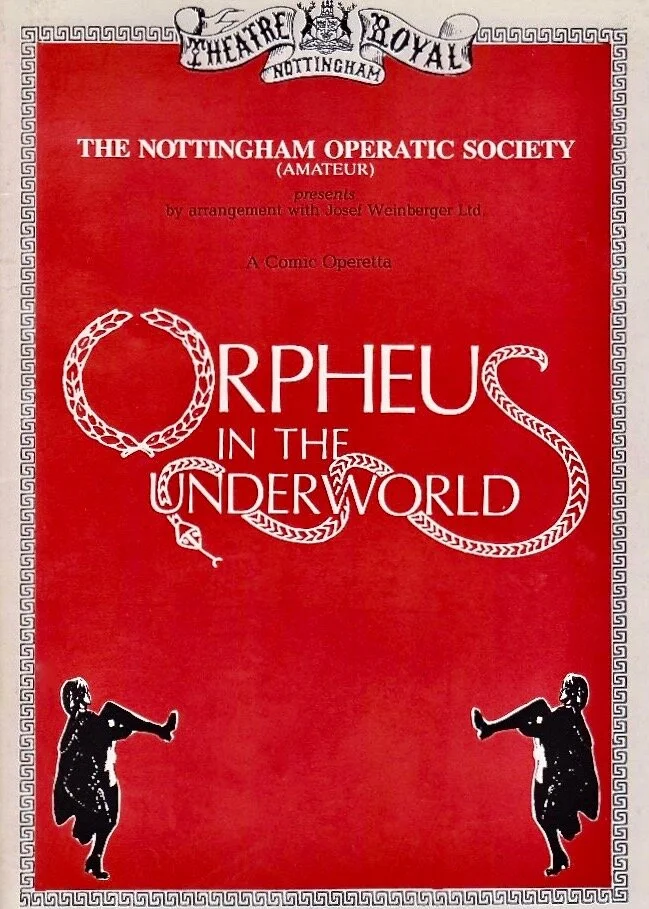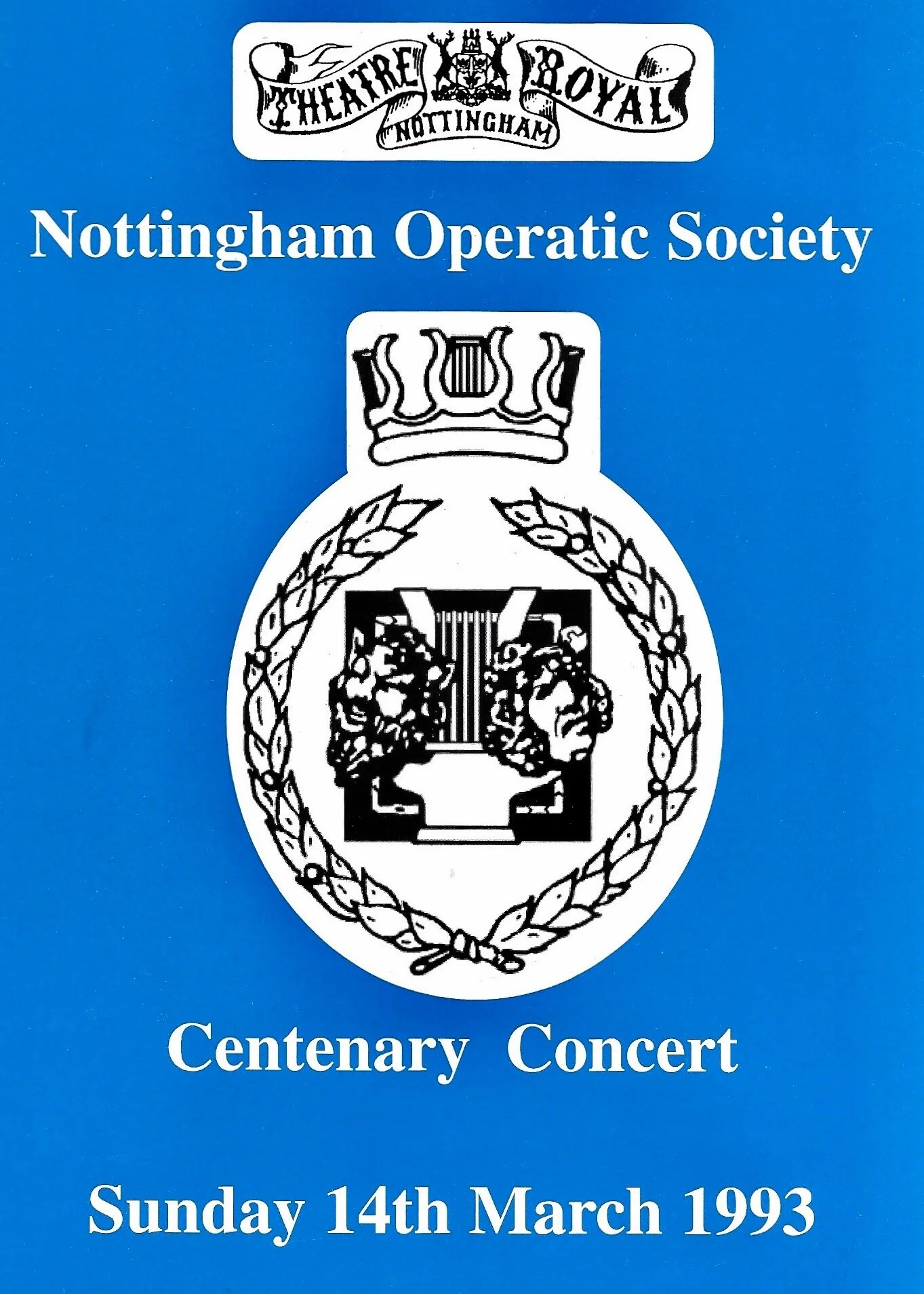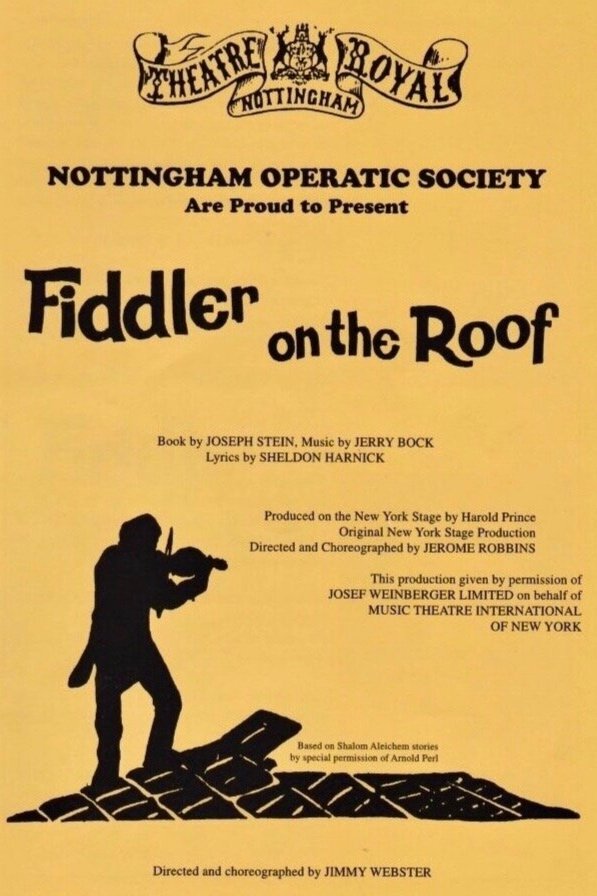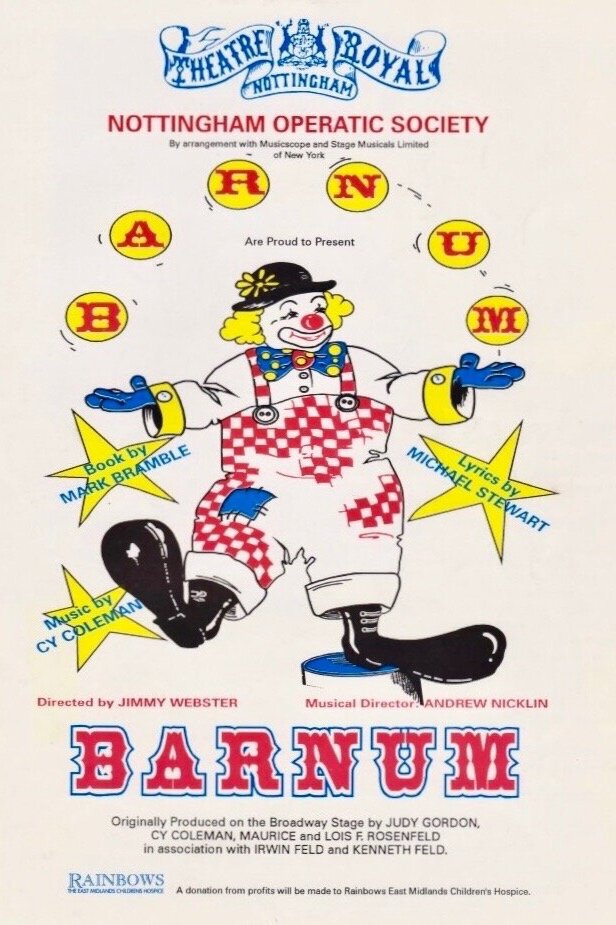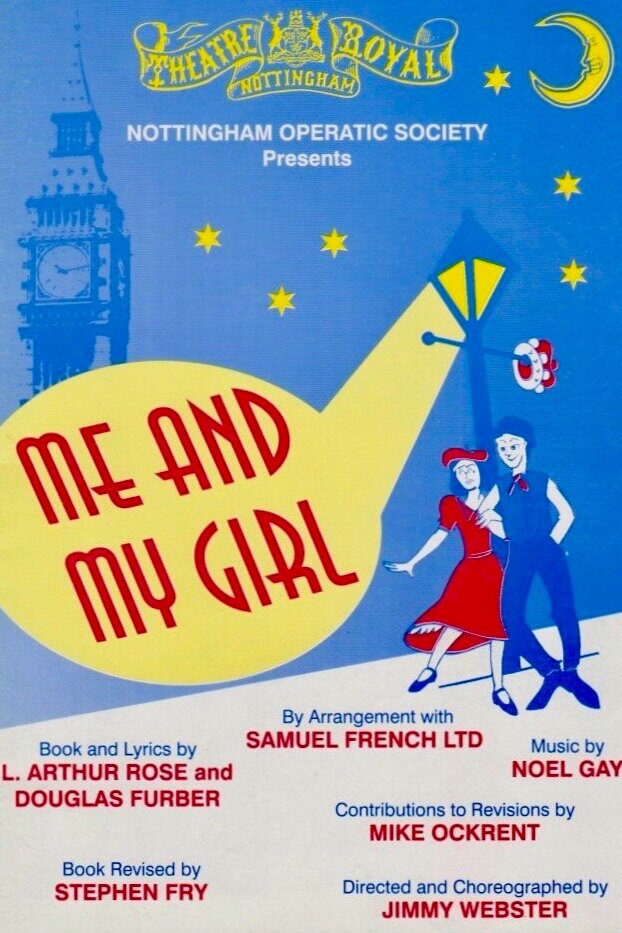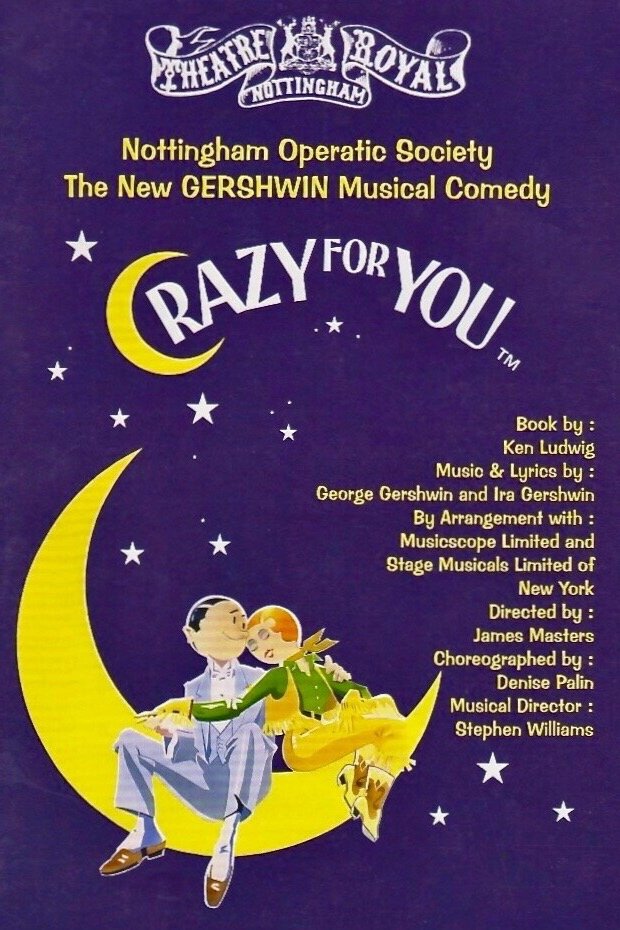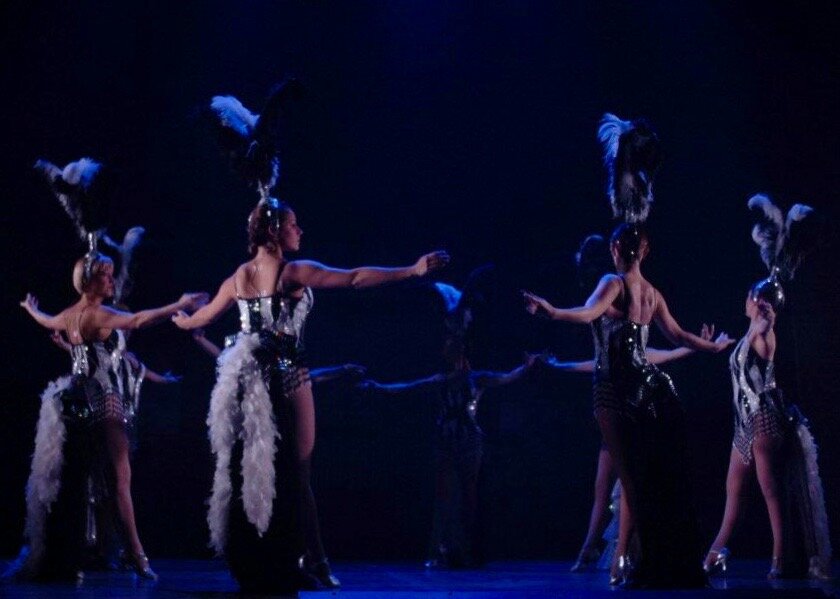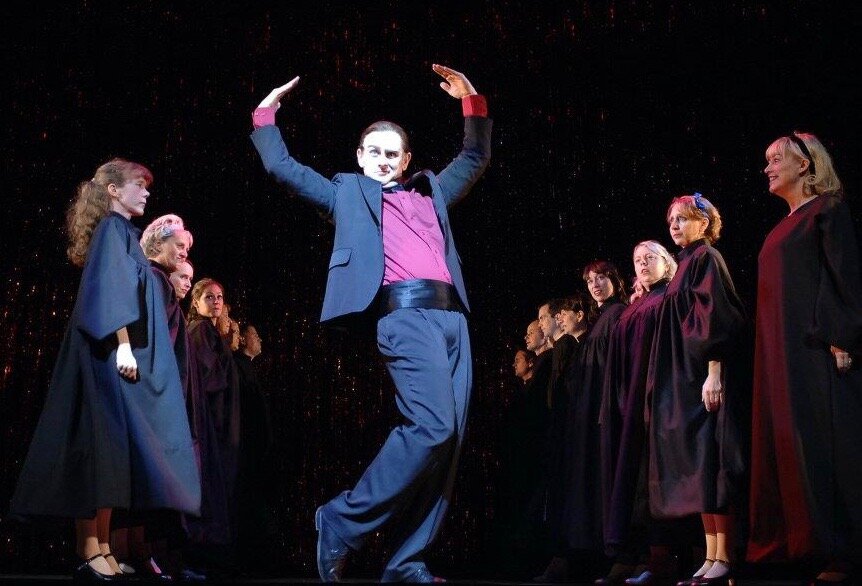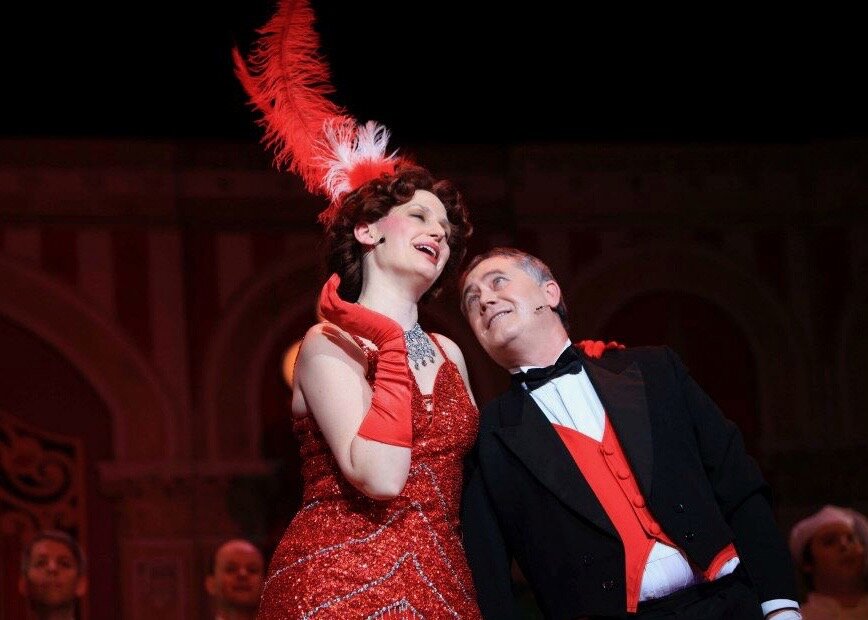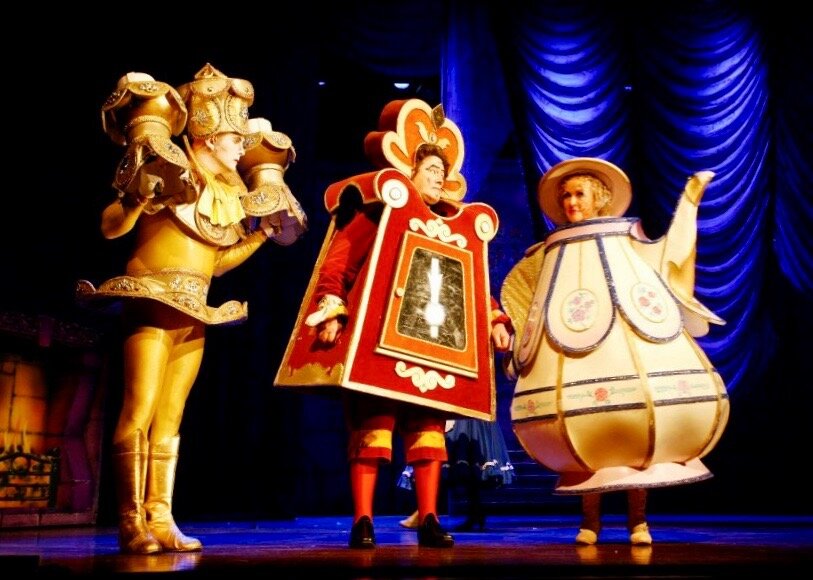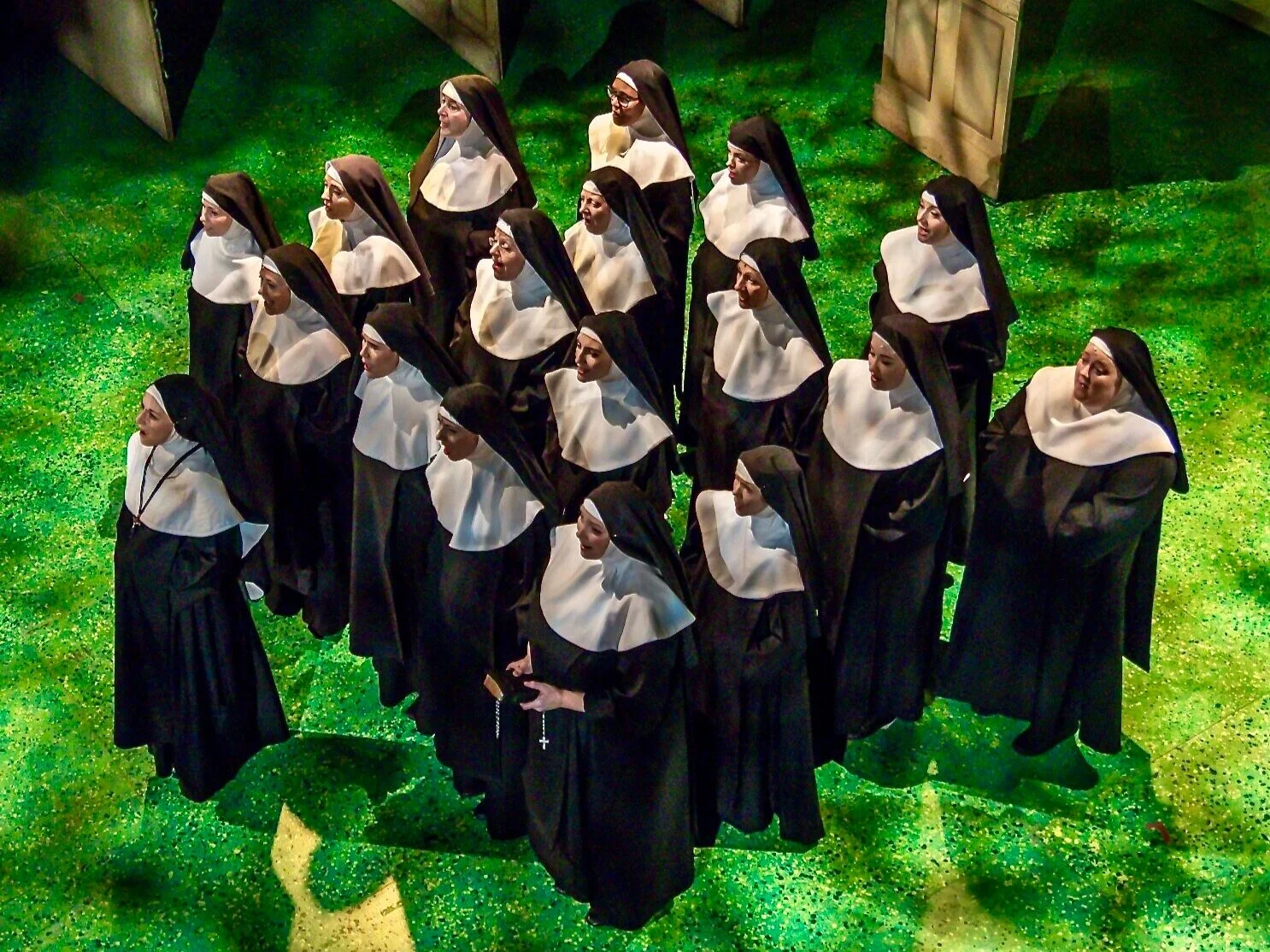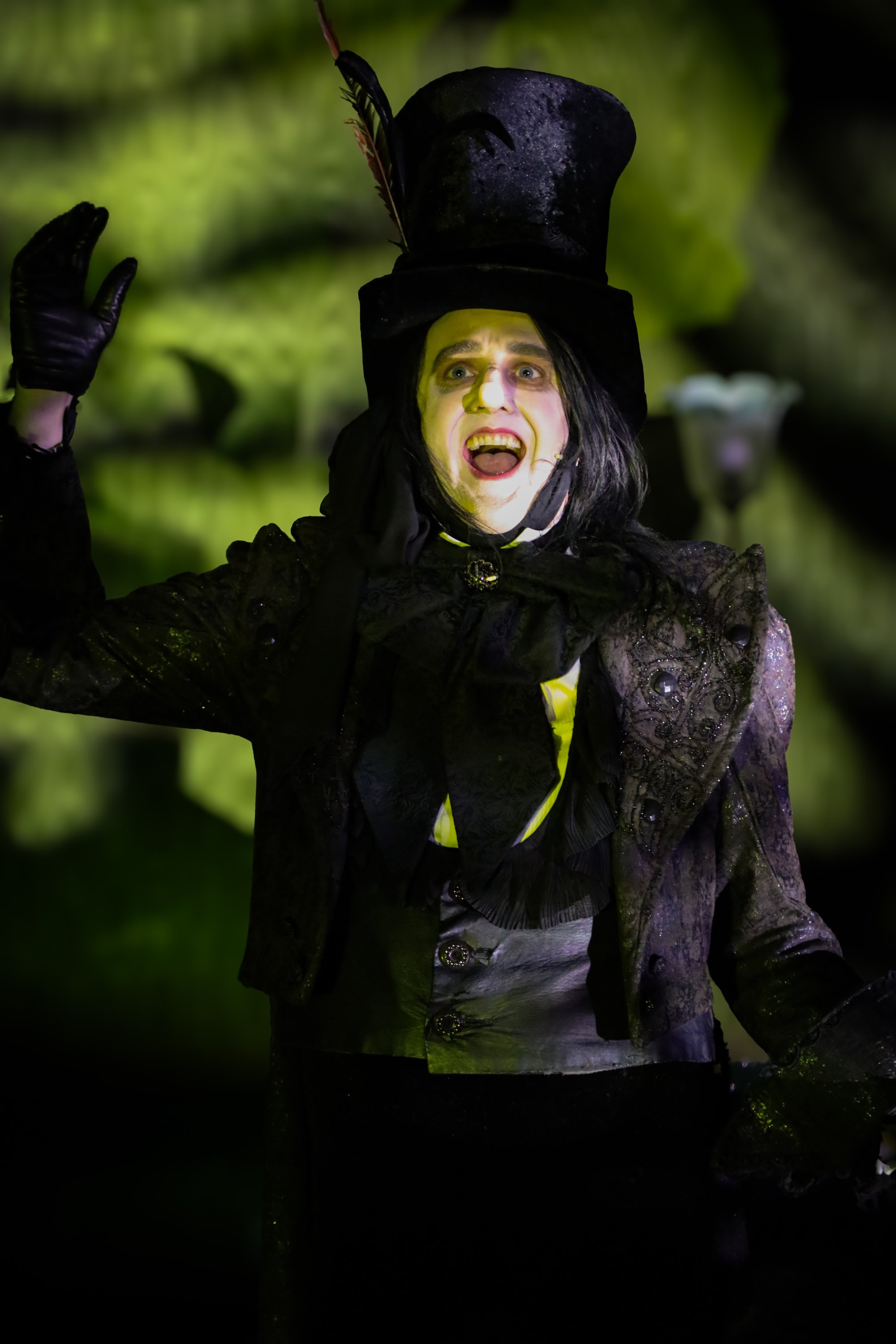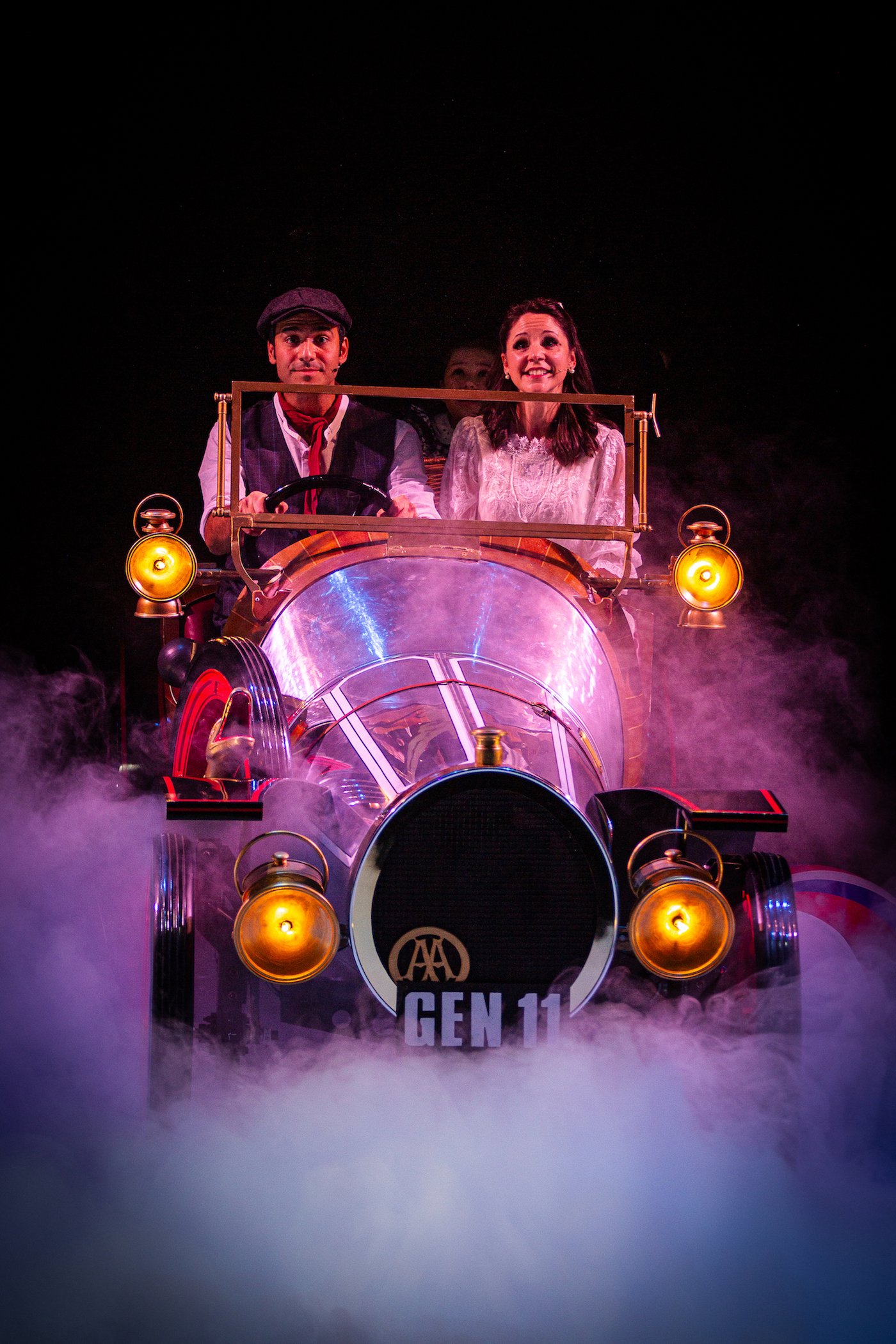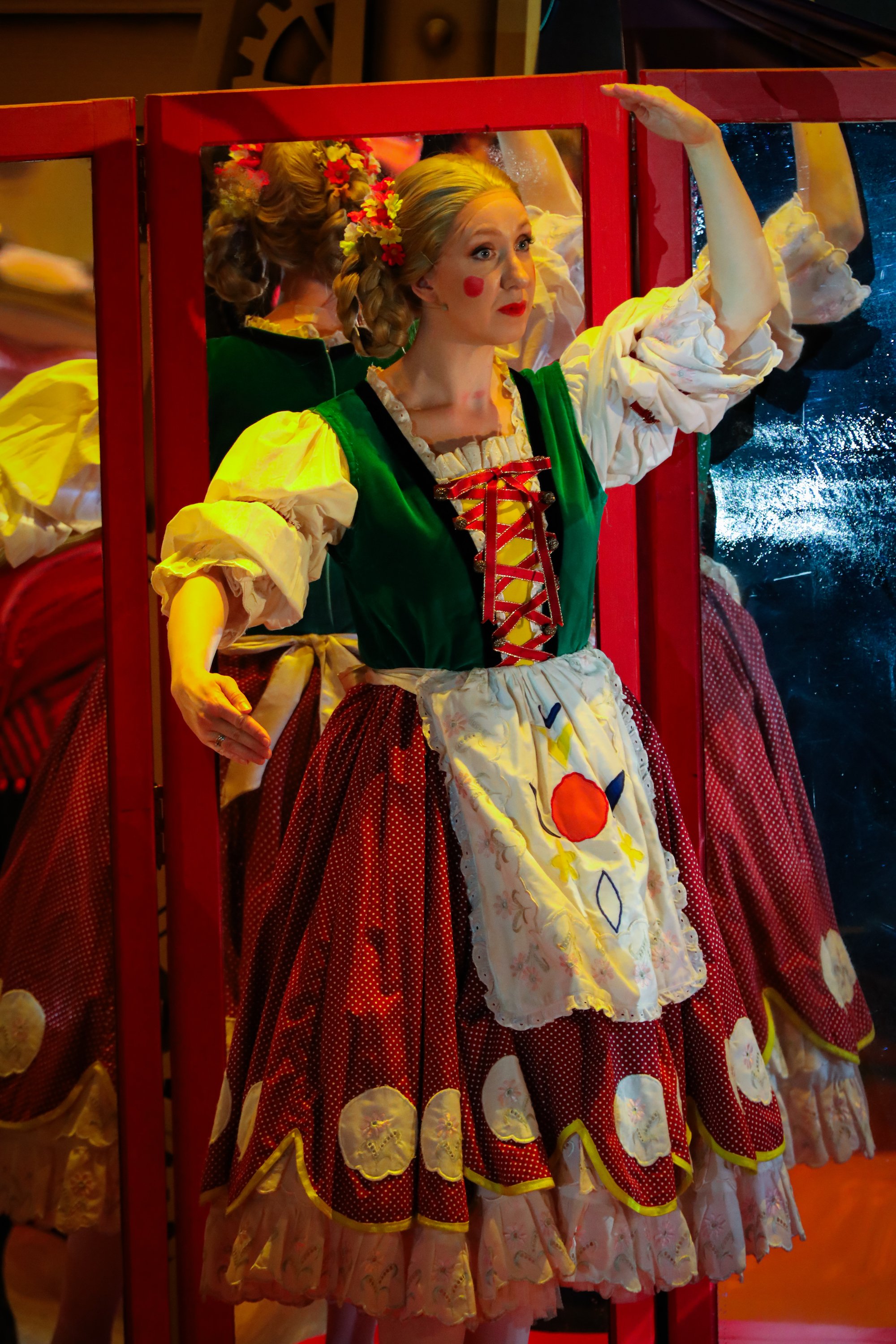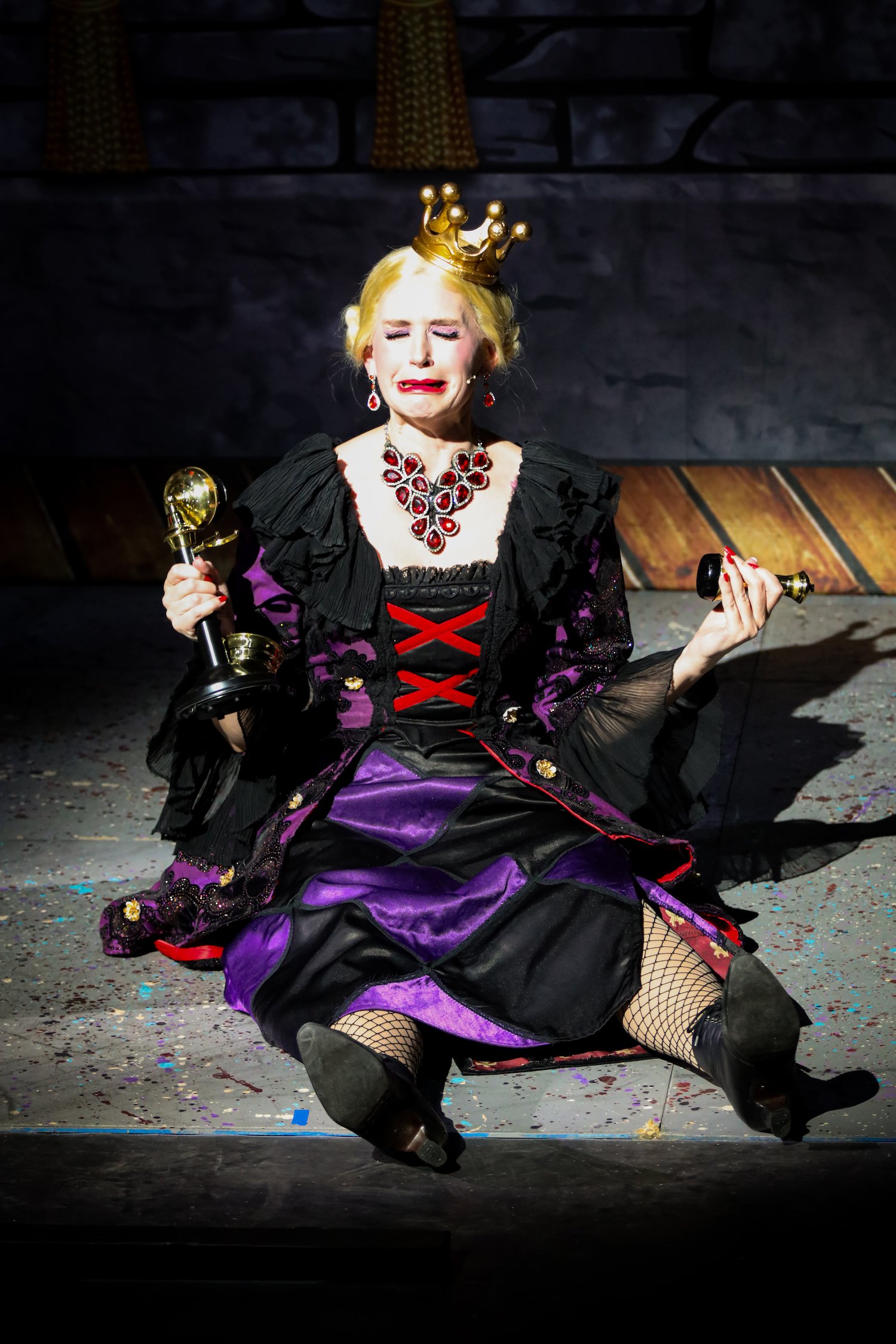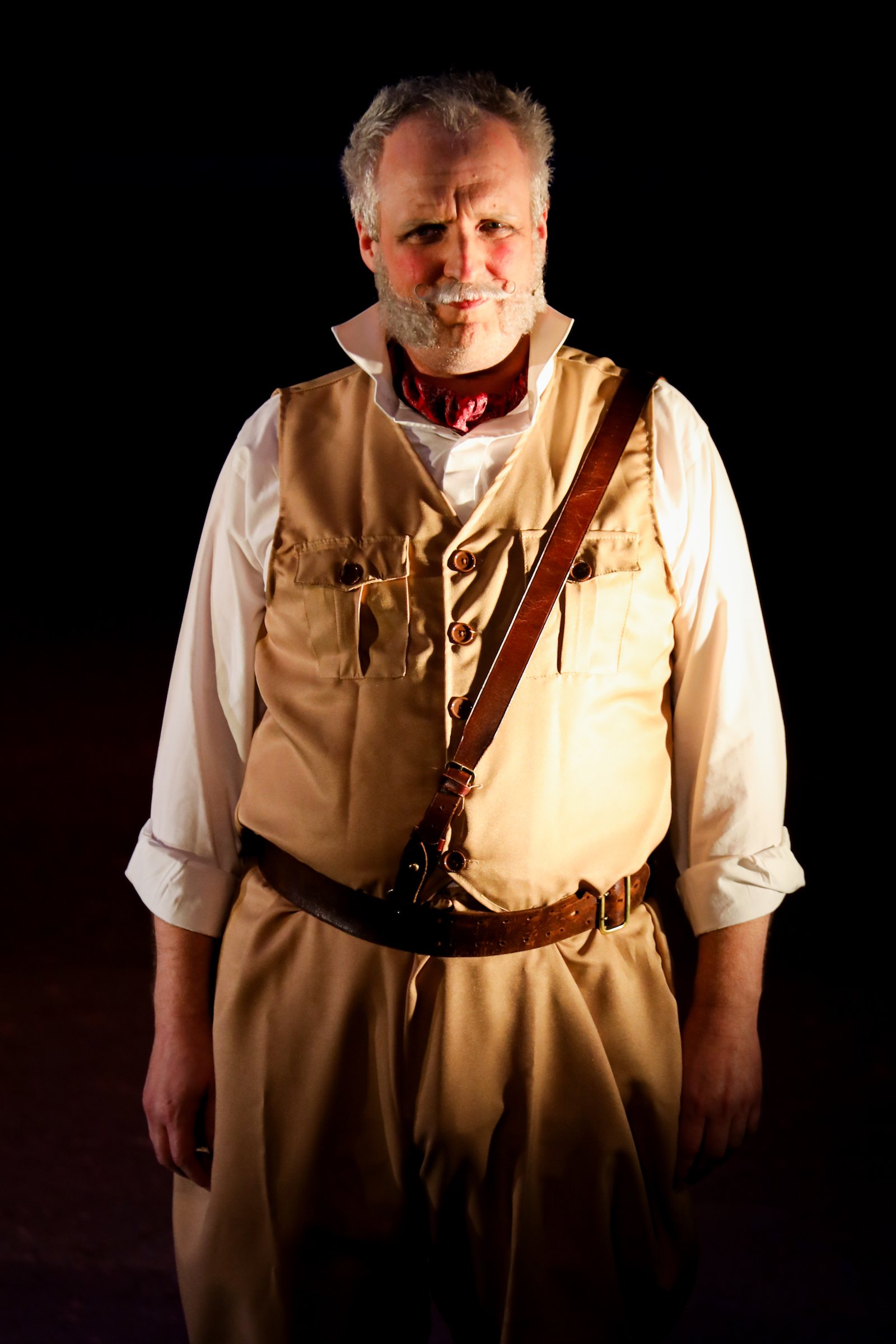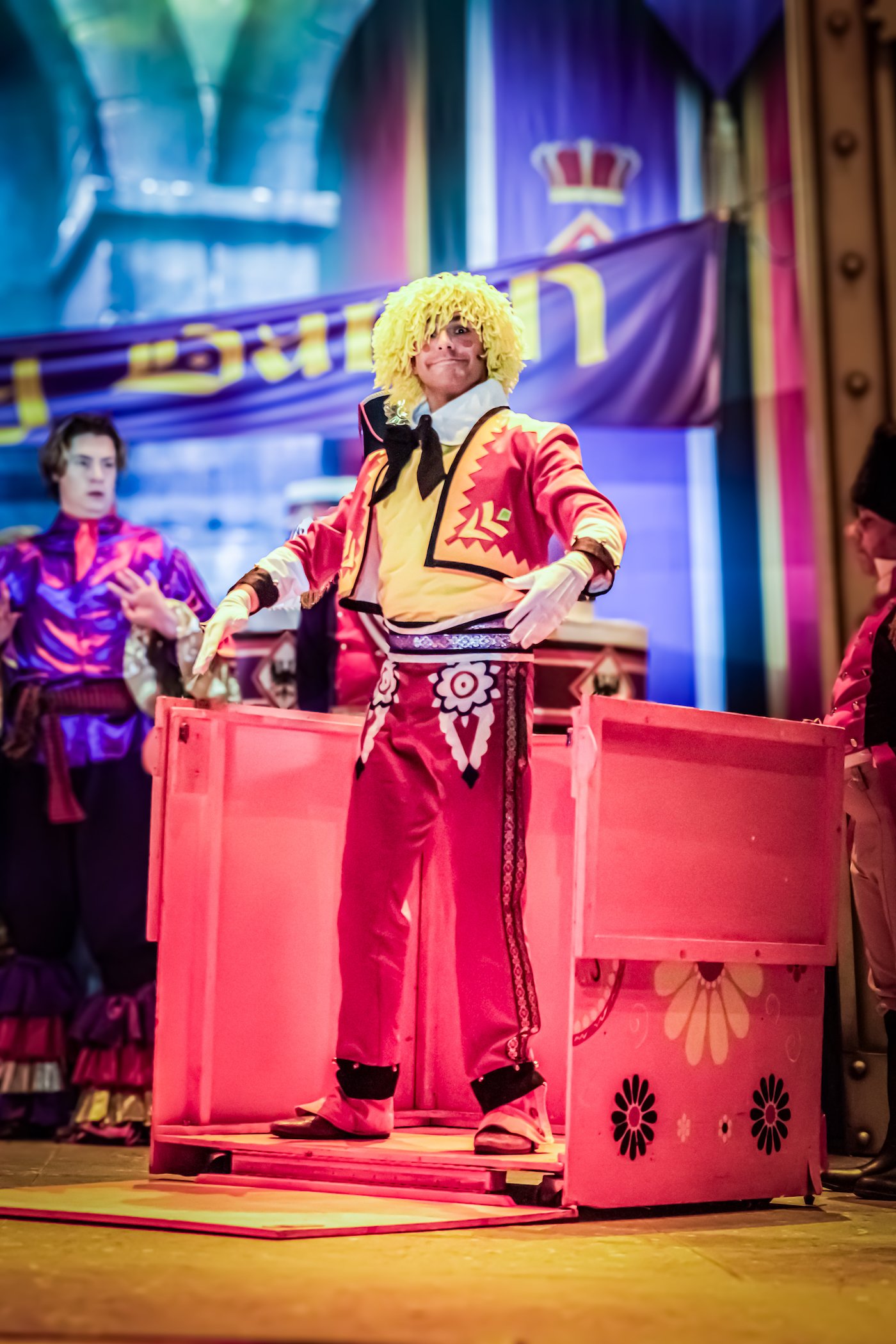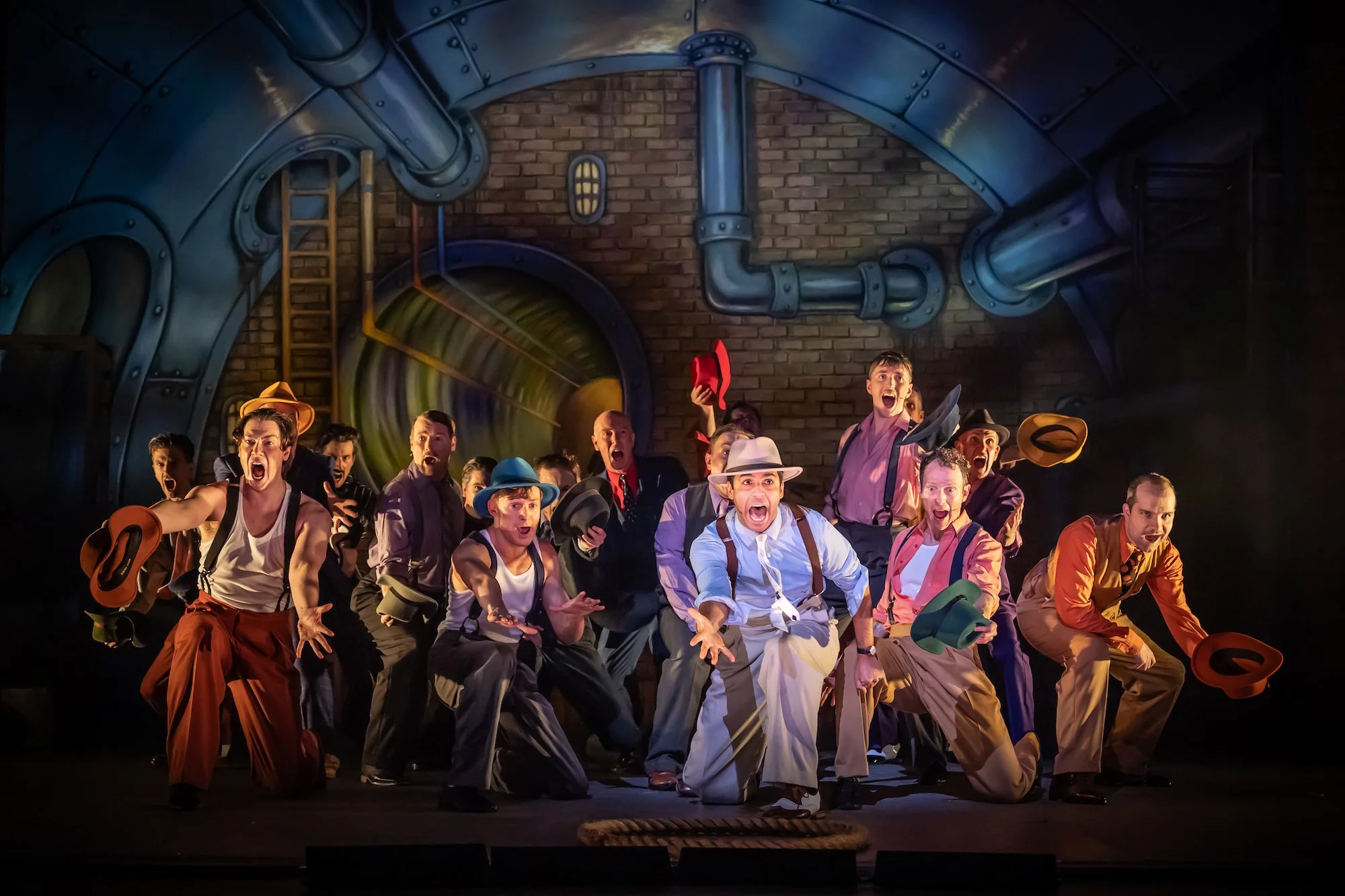
“To cultivate the knowledge of Operatic music, and to devote to charitable institutions such funds as may result from its public performances after paying the necessary expenses.”
The founding of a local Operatic Society caused quite a stir, and had on its board such ennobled gentleman as the Duke of Portland as its President, four Lords and a Viscount as Vice Presidents, as well as other dignitaries. The difference that this would make to the Society, was to bring prestige and kudos to the whole endeavour. Its debut production “Les Cloches de Corneille” by Robert Planquette was staged on 18th January 1894 and made a considerable loss. Despite this setback the Society continued, and in 1895 the company provided Nottingham audiences with a performance of “La Fille de Madame Angot” by Charles Lecocq, a comic opera in three acts and it was a financial success. From the earliest days of The Nottingham Operatic Society part of its objectives were, to educate Nottingham’s theatre going public to the changing genres in Musical Theatre. Starting out in its early days with Operetta, including Gilbert & Sullivan (G&S), but also others such as “Merrie England” written by Edward German, but very much in the same style as his contemporaries. This was to be a Musical Theatre mainstay for some forty years, and proved to be exceptionally popular as it is today for G&S aficionados!
The cost of putting on their first shows in the 1890’s amounted to circa £200 equivalent to around £26,000 in today’s money. The Mechanics Hall had a seating capacity for up to 2000, of course today NOS performs at the prestigious Theatre Royal which the Society moved into in 1925, however the seating capacity there is 1186 and the cost of productions is often upwards of £120,000 or the equivalent of £917 in the 1890’s. This means that the production value and the patrons experience must be of the highest quality and like always something that audiences want to see. Of course, the reason for doing this over the decades has not been completely selfless. Those performing do it because the draw of the footlights, and the thrill that makes the hairs on the back of your neck rise, and the adrenaline flow is like no other! If you’re lucky the applause at the end of a performance gives you a really exhilarating feeling. This would have been the same in 1894 as it is today.
For the Committee, the responsibility for their decisions in securing the best teams and Professionals to stage our performances, is great, yet year after year, they perform miracles in obtaining the rights to perform our shows (which is not easy) and therefore allow us, to fulfil our musical potential, have great fun in doing so, and provide the audiences from Nottingham and further afield something to remember, a night to be savoured and just as important to tell their friends about.
Constance Shacklock
O.B.E, F.R.A.M, L.R.A.M.
Perhaps our most famous member is Constance Shacklock O.B.E, F.R.A.M, L.R.A.M, who was an opera singer of international repute and both a member of Nottingham Operatic Society during the 1930s, and ex-President of the Society. In 1934 whilst playing in The Gondoliers, she was spotted and asked to join D'Oyly Carte Opera Company.
Constance Shacklock is best known for playing the role of Mother Abbess in a six year run of Richard Rodgers and Oscar Hammerstein II production of “The Sound of Music” at the Palace Theatre, London.
It was Constance’s influence which allowed Nottingham Operatic Society to obtain the rights to be the first amateur society to perform “The Sound of Music” which we performed first in 1970, only four years after the show had closed in London.
In 2017 we were proud to support the BBC Music Day Blue Plaque project for the East Midlands, which honoured our former member and past president, the plaque can be seen in the Theatre Royal Foyer.
During both the World Wars NOS provided concerts to keep up morale. At the beginning of WW2 in 1939, the Society began rehearsals for “The Belle of New York” with music by Gustav Kerker which was to be the last show at the Theatre Royal until 1945, but as before, the Society members continued to perform in concerts and shows at various venues raising money for the British Red Cross (Prisoner of War Fund), and during these difficult circumstances the Society celebrated 50 years in 1943, with a production of “The Pirates of Penzance”, G&S, at the Circus Street Hall in Nottingham. The first show after WW2 was “Chu Chin Chow” about Ali Baba and the forty thieves. Written by Oscar Asche and music by Frederic Norton.
As musical tastes became wider, so it was that the NOS widened its repertoire, now beginning to look not only at Great British composers and lyricists, but also to Broadway and Hollywood with shows such as ”The New Moon” in 1946, by Sigmund Romberg and Oscar Hammerstein II, both of whom will, with different collaborators feature widely in the subsequent years. Another favourite during the forty’s and fifty’s was Ivor Novello, and the first of his musicals performed was “Glamorous Night” in 1948.
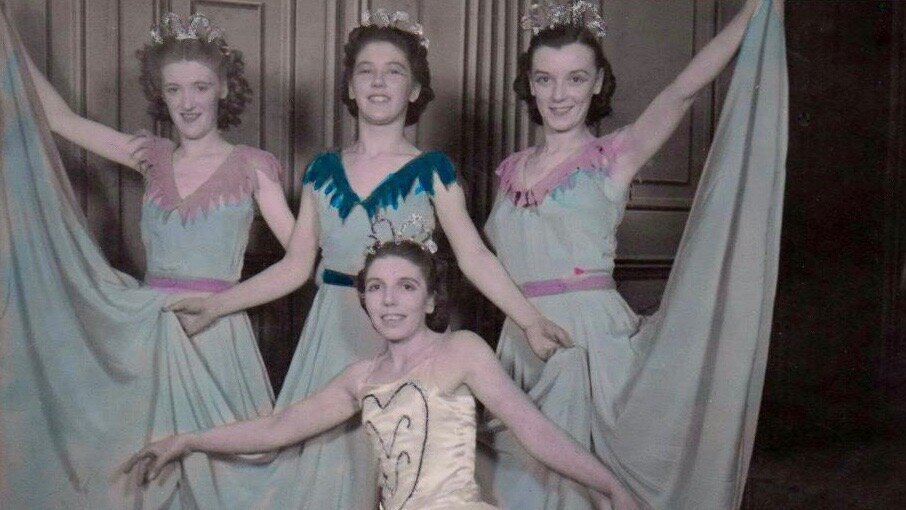
The Sixties & Seventies, a New Era…
This era takes us state side, and propelled us into a new genre with collaborations such as Jerome Kern and Oscar Hammerstein II with “Show Boat” in 1961, Richard Rodgers and Oscar Hammerstein II with “Carousel” in 1962, “Oklahoma” and “The King & I” both in 1963 and “South Pacific” in 1964. Alan J Lerner and Frederick Loewe were the collaborators of “Brigadoon” in 1965 and in 1986 with “Camelot”.
1969 was the Society’s 75th Anniversary, and the show of choice for that year was “Song of Norway” by the operetta collaborators Robert Wright and George Forrest.
The plot is a fictionalised account around the difficulties of a trio, but it is primarily about the life and music of Edward Grieg and his attempts to formulate a sound that would be immediately recognised as being Norwegian. Although the storyline not only follows Edward but also Rikard Nordraak and Edwards love interest Nina Hagerup who would later marry Edward and, if it were not for her, Edward would have struggled to compose anything.
Notable shows in the 1970’s were “The Merry Widow” by Franz Lehar whose style took after Richard Strauss and big grand waltz’s. This was most definitely back to our roots in the opera genre. The Society performed two shows a year between 1974 to 1976 the second of which in 1974 was Lionel Bart’s adaptation of “Oliver”.
1975 took us also to opera with “La Vie Parisienne” a second outing for the composer Jacques Offenbach whose operetta “Orpheus in the Underworld” was performed in 1969, but more about that particular show later.
Also in 1975, the Society followed the eccentric bohemian lifestyle of “Mame” Dennis as she introduces her late brother’s 10 year old son into her doctrine. “Mame” music and lyrics are written by Jerry Herman, it is an all American big showstopping show and film and won five of the ten Tony Awards for which it was nominated.
“Most Happy Fella” was written by Frank Loesser a musical with luxurious ballads and big Broadway numbers such as “Standing on the Corner” it is written in the style of an opera but has very much the taste and genre of a Musical. This was NOS first show for 1976 and was followed later in the year by “Oklahoma”.

The Eighties, A Significant Moment…
The eighties brings significant moment in our history, and that was our association with the renowned American-born British-based conductor Robert Mandell. Born in New York City 29 August 1929 Robert was a protégé of Leonard Bernstein studying under him for three years and recommending him for a scholarship at the Juilliard School of Music.
Robert came to work with Nottingham Operatic Society in 1986, acting as both Musical Director and Director. He created an artistic and musical success in Camelot for Nottingham Operatic Society to be proud of.
It was Robert’s intention to take a professional production of ‘Camelot’ on tour, and in producing ours was ‘trying out some ideas’. Robert however, did give members of Nottingham Operatic Society the feel of being a touring company, taking them to Croydon’s Fairfield Hall, The Barbican in London and Birmingham Town Hall, and two concerts at The Concert Hall in Nottingham. These concerts were as backing singers, performing musical numbers with The Melachrino Strings Orchestra.
He died 25 April 2020 at the Leicester Royal Infirmary, just short of his 91st birthday.
“Let Me Entertain you”
Among several great Broadway shows presented by the Society in the 1980’s was Julie Styne and Stephen Sondheim’s “Gypsy”. This is the story of Gypsy Rose Lee born Rose Louise Hovick, she was the second daughter of a dominant mother who took her daughters on the road to get them into showbiz on the Vaudeville circuit. Known as Louise in her touring days, she was the shy one with her older sister June taking the front. With not much singing or dance talent Louise was left at home where she received only a rudimentary education.
Later however once June had eloped with a dancer in the troupe, Louise was pushed to the front and although with no talent for Vaudeville on the Burlesque circuit, Louise changed her stage name to Gypsy Rose Lee and she became the star of Minsky's Burlesque where she thrived with her headlining Striptease act. “Gypsy” contains the popular songs: “Everything’s Coming Up Roses”, “Together Wherever We Go” and “Let Me Entertain You”.
The Nineties, A Risky Business…
There is no such thing as a sure fire hit in the musical theatre world, and the Society has had its experience of box office losses as far back as 1894. This business is risky, and as prices for theatre hire, musicians, costumes and scenery increase so the risk increases too. One such occasion was in 1990 when NOS performed the operetta by Jacques Offenbach “Orpheus in the Underworld”, it was not the first time that they had entertained Nottingham with this operetta first performing it in 1969. This time however, it caused the Society real financial hardship.
“Orpheus in the Underworld” transports us to a hedonistic, party-filled Underworld. Eurydice is fooled into taking Pluto, ruler of the Underworld, as her lover after her new marriage to Orpheus is broken through tragedy. Orpheus must try to win his wife back, but to achieve the impossible he needs the help of the glamorous, conceited but rather bored gods. The operetta features the popular and wonderful “Galop infernal” otherwise known as The Can-Can.
In order to recover and be able to continue performing at The Theatre Royal, the General Committee decided to stage a perennial favourite, Alan J Lerner and Frederick Loewe’s “My Fair Lady”. It was the second show that year and was a case of make or break, fortunately it was a financial success.
The Society and full orchestra also performed “Get Me To The Church On Time” on stage in Old Market Square Nottingham to support BBC Children In Need, This was broadcast to the nation on BBC1.

NOS went on to succeed in the 90’s with the modernised “Pirates of Penzance”, with a much more robust swashbuckling and more comedic presentation than the original and a second outing for the timeless classic Oliver both in 1991 and then revisiting Brigadoon in 1992.
Our centenary year 1993 brought “Kismet”, going back to the music duo Robert Wright and George Forrest although much of the music was adapted from the pen of Alexander Borodin especially in some of the shows greatest songs such as “Stranger in Paradise”, “And This is My Beloved” and “Baubles, Bangles and Beads” and then of course, there was the Centenary Concert featuring songs from many of the shows the Society had performed in their hundred year history but also some songs from shows they hadn’t performed designed to showcase the talent within Nottingham Operatic Society.
Of course, the Centenary year for Nottingham Operatic Society was a huge event and in performing the Centenary Concert celebrated the achievements of the most prestigious, successful and celebrated Amateur Society in the City if not the region. In order to promote the concert some of the songs were performed on BBC Radio Nottingham
The 66 members of the Senior Society with members of the Youth Group together with a 44 piece Orchestra under the direction of Andrew Nicklin ably supported by his Assistant Musical Director June Johnston, created a memorable gala evening.
Amongst other shows in this decade were a reprise of Jerry Bock and Sheldon Harnick’s multi-award winning “Fiddler on the Roof” in 1994, Cy Coleman and Michael Stewart’s “Barnum” in 1995, finishing the decade with George & Ira Gershwin’s “Crazy for You” in 1999, a musical based around the love interest between Bobby and Polly and the decaying Gaiety Theatre in Deadrock, Nevada. Bobby has been sent to seize the Theatre by the bank that he works for but then he has a plan and in doing so he wins the girl whose father owns the theatre. Bring in the all singing and dancing Zangler Follies to save the theatre.

The Millennium
2000
The Millennium brought another step change with the Society trying new shows in addition to some of the old favourites. In 2000 the Society took on Leslie Bricusse's “Scrooge The Musical”, using clever lighting and stage effects to create atmosphere and bring the audiences into the Victorian world of Charles Dickens - A Christmas Carol.
2001
NOS over the years has been fortunate to have been in the main, a successful Society, bringing its members and audiences wonderful productions in the two main Nottingham theatres, the Theatre Royal and Nottingham Playhouse. During these times we have brought new shows such as with Frank Wildhorn and Nan Knighton’s “The Scarlet Pimpernel”
2002
Also new for NOS was Andrew Lloyd Webber and Tim Rice's musical “Evita” both brought to the stage in 2002 . Evita is of course the story of Maria Eva Duarte better known as Eva Peron. The great songs “Oh What A Circus”, “Another Suitcase in Another Hall” and “Don’t Cry For Me Argentina” all originate from Evita.
2004
2004 brought us the wonderful tap extravaganza “42nd Street” by Harry Warren, Al Dubin and Johnny Mercer, followed by Maury Yeston's, “Titanic the Musical” in 2005. This musical with its wonderful score represents the tragic story of the sinking of the great White Star Liner, in as close a way as possible to bring audiences to that fateful cold night in the Atlantic Ocean.
2006 took us to the wonderful music of Stephen Sondheim, this time with “Follies”, a new style of music, challenging at times often with harmonies made from discordant notes, which when put together produce a wonderful sound.
Then NOS took on flying members of the cast in John Dempsey and Dana P Rowe’s adaptation of “The Witches of Eastwick” in 2007 this was another first for NOS. The story centres around three female leads playing strong but frustrated women whose lives are humdrum in the extreme and in their ambitions to liven up this existence and to gain excitement from anything ‘Male’ they find a charismatic match in all meanings of the word in Darryl Van Horne. He seduces each one in turn and teaches them how to unlock and expand the powers they have in side, scandalising the townsfolk. As their new found powers become more extreme their lives spiral out of control and they begin to understand how whoever Darryl has contact with is corrupted. They use their new talents to turn them against Darryl in an attempt to free themselves from his control.
Alan Menken, Howard Ashman, and Tim Rice's “Beauty and the Beast” in 2010 was the Society’s first venture into the magical world of Walt Disney.
In the decade following on from Beauty & The Beast came a series of shows that were new for the Society in addition to old favourites. Financial considerations meant taking our 2012 production of Jerry Herman’s “Hello Dolly” back to the Nottingham Playhouse, but the Society moved back to the Theatre Royal in 2013 for Oklahoma!
In 2014 came Charles Strouse and Martin Charnin’s “Annie”, the first time this had been performed by NOS. Next the hilarious and wonderful musical creation of Marc Shaiman and Scott Wittman, “Hairspray”, in 2015. It was a great box office and artistic success. This was followed by the outrageous Mel Brooks and Glen Kelly’s “The Producers”, which was given all round critical acclaim in 2016. The following year, 2017 came a return for Eliza Doolittle in “My Fair Lady” a show that had been not available for amateurs for some time. 2018 brought us a return to Andrew Lloyd Webber & Tim Rice’s music and their first major hit - “Joseph And The Amazing Technicolor Dreamcoat”.

NODA Review of “The Producers”
“I was lucky enough to see The Producers in its opening run in London over 10 years ago with Nathan Lane and Lee Evans in the roles of Bialystock and Bloom and in many respects the Nottingham Operatic production was its equal in terms of energy, lighting, set and choreography. It was, however, in comedic timing throughout the talented principals and ensemble, that last night was in all honesty superior to the London debut production. The thing about great ‘Non Paid’ theatre is that no-one is going through the motions, the short run of the production ensures that all acting and backstage crew put all their energies into delivering the best that they can be and all involved in The Producers should be proud of what they have achieved in every single aspect of this show”
The decade ended with our production of “The Sound of Music” for the second time, but this time celebrating its 60th Anniversary. Our performances welcomed some of the largest audiences in recent memory. Although a wonderful musical, there is hardly any music for the Gentlemen of the Society, so the following year was to set the record straight with our 2020 production of “Guys and Dolls”, with wonderful opportunities for the male ensemble. However, it was not to be, as the worldwide pandemic of Covid-19 was causing major disruption to the UK, with a nationwide lockdown confirmed in March 2020. This closed theatres worldwide with social distancing to become the norm.
The Society’s committee decided to postpone both the 2020 and 2021 productions and proceed with plans for “The Hunchback of Notre Dame” in 2022, (music by Alan Menken, lyrics by Stephen Schwartz and book by Peter Parnell, based on the Victor Hugo novel and songs from the Disney film)
This was indeed a challenging two year period for the Society, and the longest enforced break since 1940.
“It’s formidable. It’s remarkable. It is a grand theatrical spectacle.” - East Midlands Theatre
We started to work with Disney over 5 years ago, to persuade them to release the performance rights to their version of “The Hunchback of Notre Dame”. The whole Society was excited when we were given the first rights in 2019, and we knew our members would rise to the challenge of bringing this amazing new musical to our Nottingham audiences. Post-pandemic we finally got to perform this wonderful musical in October 2022, and to date it was probably our most challenging production yet. The whole company cast, crew and creative worked extremely hard during the rehearsal period to produce a most spectacular theatrical spectacle, complete with a wonderful new set and costumes, this was a performance not to be missed!
130 years later…
2023 was our 130th Anniversary of making music, with a brand new production of the award winning musical “Chitty Chitty Bang Bang”. This was probably the most expensive and technical show we have ever put on the stage, which included a cast of around 70 adults and children, over 300 costumes…not to mention the flying car! Originally written by Ian Fleming as a story for his son Caspar, it became the much loved 1968 film starring Dick van Dyke and Sally Ann Howes, with a sensational score by Richard and Robert Sherman.
In October 2024 - four years later than originally scheduled due to the pandemic, we staged our first ever production of Frank Loesser's beloved award wining musical Broadway smash “Guys and Dolls”. Bustling with gamblers, gangsters, and showgirls, Guys and Dolls celebrates Damon Runyon’s comic book world of 1940s Times Square, New York City. The show originally conquered Broadway in 1951 running for over 1200 performances and was the winner of 5 Tony Awards including Best New Musical, and again in 1992 with 4 Tony Awards including Best Revival of a Musical. It’s currently taking London by storm once again in The Bridge Theatre’s award winning immersive production.
100 Years of Performing at our Spiritual Home
2024-2025 A year of celebrations!
We will be staging three wonderful musicals to celebrate 100 years of performing at Nottingham’s Theatre Royal - starting with Guys and Dolls - October 2024, finishing with Charlie and the Chocolate Factory - October 2025, and the once in a lifetime musical Les Misérables in May 2025.
After over 12 months of discussions with MTI and Cameron Mackintosh, we were thrilled to announce that Nottingham Operatic Society would lead one of eleven amateur adult premierès of Alain Boublil and Claude-Michel Schönberg’s multi-award winning musical phenomenon, Les Misérables. This community based production is in collaboration with the Theatre Royal, Carlton Operatic and TheCast.
Cameron Mackintosh commented: “As we approach the extraordinary landmark of the 40th record-breaking year of the iconic musical’s London run, alongside countless productions around the world, we are delighted to invite 11 of our leading amateur companies in the UK to stage, for the first time, the entire show in their own productions. This will involve many hundreds of amateur performers around the country, becoming part of our own yearlong celebrations.”
Just as it was at the very start in 1893, it is still the aim of NOS to contribute to the local community.
“To provide education and entertainment for members of the general public by giving a wide range of affordable, concessionary theatrical performances and concerts of music, drama and dance in the Nottingham area. To improve on performing or backstage skills for both amateur and professional members. Where possible to provide funds, time and performances to help charities”







